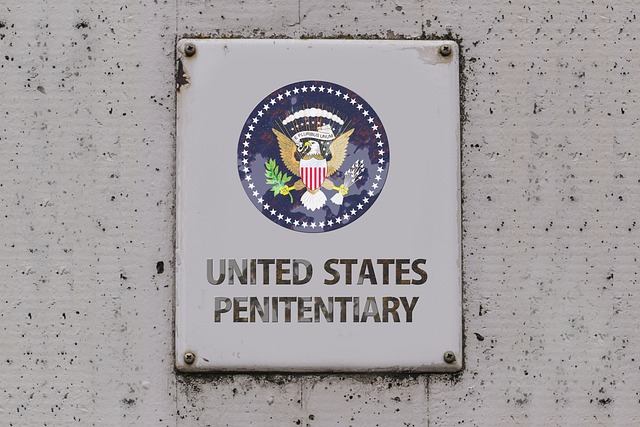Community service initiatives targeting Drug Interaction and DUI Law education and prevention are vital for public safety and offender rehabilitation. By empowering individuals with knowledge about drug interactions and legal consequences, these programs deter DUI incidents, save lives, and foster positive change. Tailored community service projects for at-risk youth, including mentorship and educational workshops, disrupt cycles of addiction and associated legal troubles. While facing challenges like community disconnection and substance abuse barriers, a more integrated approach combining evidence-based treatment and partnerships can transform community service into a powerful tool for redemption and public safety.
Community service as a form of reparation is gaining traction within the criminal justice system, particularly for DUI offenses. This article explores the multifaceted impact of community service on offenders and its potential to address drug interactions and DUI laws effectively. We delve into key strategies, successful case studies, and emerging challenges, highlighting the role of community service in fostering rehabilitation and public safety. Understanding drug interactions and DUI laws is crucial to leveraging community service as a powerful tool for positive change.
- Understanding Drug Interactions and DUI Laws
- The Impact of Community Service on Offenders
- Effective Strategies for Community Service Projects
- Case Studies: Successful Community Service and DUI Cases
- Challenges and Future Directions for Community Service in DUI Cases
Understanding Drug Interactions and DUI Laws

Community service often involves educating individuals about critical societal issues, such as drug interactions and DUI laws. Understanding drug interactions is paramount, as it can significantly impact an individual’s health and well-being. The complex web of chemical reactions between medications can lead to adverse effects, making it essential for community service programs to shed light on this topic. By raising awareness, these initiatives empower people to make informed decisions regarding their medication use.
Moreover, educating the community about DUI laws is crucial in promoting road safety. Driving under the influence not only poses a risk to the driver but also to others on the road. Community service projects can play a vital role in informing individuals about the legal implications and potential consequences of operating a vehicle while impaired. This knowledge acts as a deterrent, encouraging responsible behavior and potentially saving lives.
The Impact of Community Service on Offenders

Community service can be a powerful tool for offenders looking to make amends and turn their lives around. By participating in community service projects, individuals convicted of crimes, especially those involving drug-related offenses or DUI (Drug Interaction and DUI Law), have an opportunity to give back and demonstrate their commitment to change. This form of restitution not only benefits the communities they serve but also offers a sense of purpose and redemption for the offenders themselves.
Engaging in community service allows individuals to develop new skills, gain valuable experiences, and rebuild their reputation. It provides an alternative path, shifting the focus from past misdeeds to future contributions. For instance, an offender with a drug-related conviction can contribute to substance abuse prevention programs, offering support and sharing their story of recovery. This not only aids in their own healing but also empowers others facing similar challenges, fostering a positive cycle of change.
Effective Strategies for Community Service Projects

Effective community service projects go beyond simple tasks; they aim to address deep-rooted issues within a community, fostering positive change. When focusing on at-risk youth or those recovering from substance abuse like drug addiction and DUI (Drug Interaction and DUI Law violations), engaging the entire community is key. Mentorship programs, for instance, pair skilled volunteers with young individuals, offering guidance and role models for a better future. This strategy not only provides immediate support but also creates a supportive network that can prevent future legal issues related to Drug Interaction and DUI Law.
Another powerful approach is organizing workshops or awareness campaigns that educate community members about the dangers of substance abuse and its interplay with legal consequences. These initiatives empower individuals to make informed decisions, breaking down the cycle of addiction and potential legal troubles associated with Drug Interaction and DUI Law. By combining direct assistance with educational outreach, communities can effect long-lasting change and create a safer, healthier environment for all.
Case Studies: Successful Community Service and DUI Cases

In many Drug Interaction and DUI Law cases, community service has emerged as a powerful tool for justice and redemption. Successful implementations are often marked by tailored programs that address both the individual’s misconduct and underlying issues. For instance, consider a young person charged with driving under the influence who is also struggling with substance abuse. A court-mandated community service program focusing on addiction recovery support groups and education, coupled with regular sobriety checks, has shown promising results in similar cases. This multifaceted approach not only deters future DUI offenses but also fosters personal growth.
Another compelling case involves a community service initiative targeting at-risk youth. By engaging them in projects like urban gardening and mentorship programs, this program successfully diverted youths from drug abuse and gang activity. The sense of purpose and accomplishment derived from contributing to their community outweighed the allure of illegal substances or criminal behavior. These case studies underscore the transformative potential of community service when designed with both rehabilitative and reparative goals in mind.
Challenges and Future Directions for Community Service in DUI Cases

Community service as a form of punishment for DUI (drunk driving) cases aims to balance accountability with opportunities for redemption. However, it faces significant challenges, particularly when individuals struggle to find meaningful connections to their community or face barriers to participating due to ongoing substance abuse issues and legal restrictions. The intersection of Drug Interaction and DUI Law complicates matters further, as individuals convicted may require specialized support to effectively engage in community service without exacerbating their addiction or legal vulnerabilities.
Looking ahead, future directions for community service in DUI cases necessitate a more nuanced approach. This includes integrating evidence-based treatment programs within community service requirements, ensuring accessibility and flexibility for participants, and fostering partnerships between legal systems, healthcare providers, and community organizations. By addressing these challenges proactively, community service can evolve into a truly transformative experience, promoting public safety while empowering individuals to make amends and rebuild their lives in positive, sustainable ways.
Community service plays a pivotal role in rehabilitating offenders involved in drug-related driving under the influence (DUI) cases. By understanding the intricate web of drug interactions and DUI laws, we can design effective community service projects that address the root causes of these offenses. The case studies presented highlight successful implementations, demonstrating the potential for community service to make amends and reduce recidivism. However, challenges persist, urging further exploration and adaptation of strategies to meet the unique needs of each offender. Navigating these complexities is essential to harnessing the full potential of community service in transforming lives and fostering safer communities.






